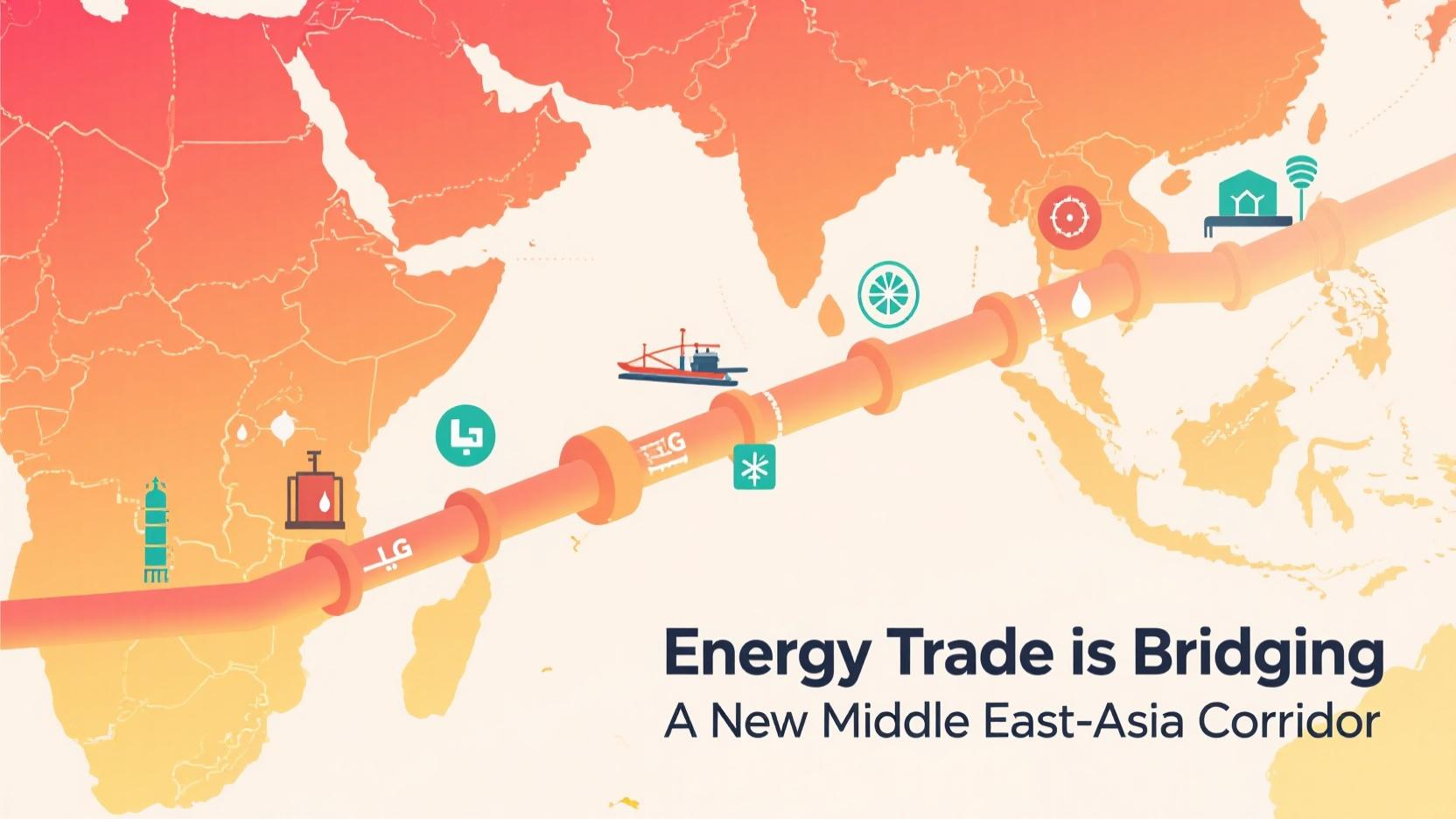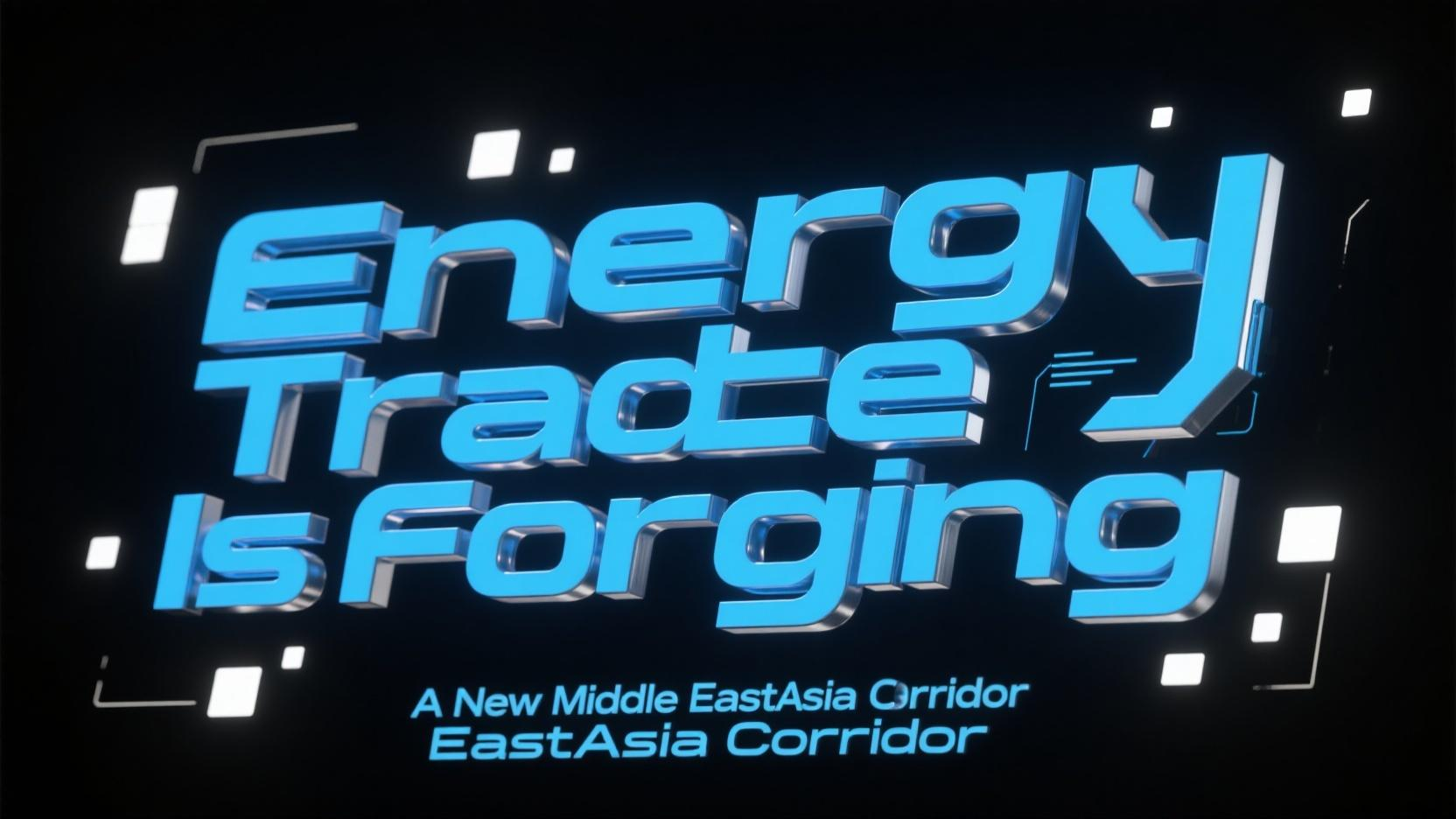From Oil to Hydrogen — Why Gulf States Are Betting on an Eastward Future
The Middle East’s role as the energy heart of the world is shifting—not in relevance, but in orientation. While Western economies are transitioning to renewables, Asian demand for energy continues to rise, creating a new corridor of trade, investment, and infrastructure between the Gulf and Asia.
Eastward Shift in Energy Exports
In 2023, over 70% of Saudi Arabia’s oil exports went to Asia. But the story is no longer just about crude. Gulf countries are now:

Building LNG terminals tailored for Asian buyers
Investing in green and blue hydrogen production
Signing long-term energy security deals with China, India, South Korea, and Japan
This eastward pull is backed by multi-billion-dollar infrastructure:
UAE’s Etihad Rail connecting ports to energy clusters
Chinese-built refineries in Oman
India’s stake in Abu Dhabi’s oil storage facilities
Beyond Fuel: Industrial Co-Development
Energy is the anchor, but the trade corridor is expanding into:
Joint R&D in clean energy tech
Smart port logistics collaboration
Cross-listed energy derivatives on Asian and Gulf exchanges
Saudi Aramco’s investment in South Korean petrochemical plants, for example, includes technology transfer and training, making it a two-way industrial exchange.
Strategic Implications
This new corridor comes with strategic realignments:

Gulf sovereign wealth funds are pivoting capital eastward
Asian buyers are pushing for yuan- or rupee-denominated contracts, reshaping global currency flows
Logistics firms are reconfiguring shipping lanes around Red Sea–Indian Ocean–Strait of Malacca axes
The U.S. remains a key military partner, but economic gravity is moving east.
Key Takeaway
The Middle East–Asia energy corridor is more than a pipeline — it’s a platform for co-development. As the world transitions to new energy sources, this partnership may shape the future industrial and geopolitical order of the Eastern Hemisphere.
